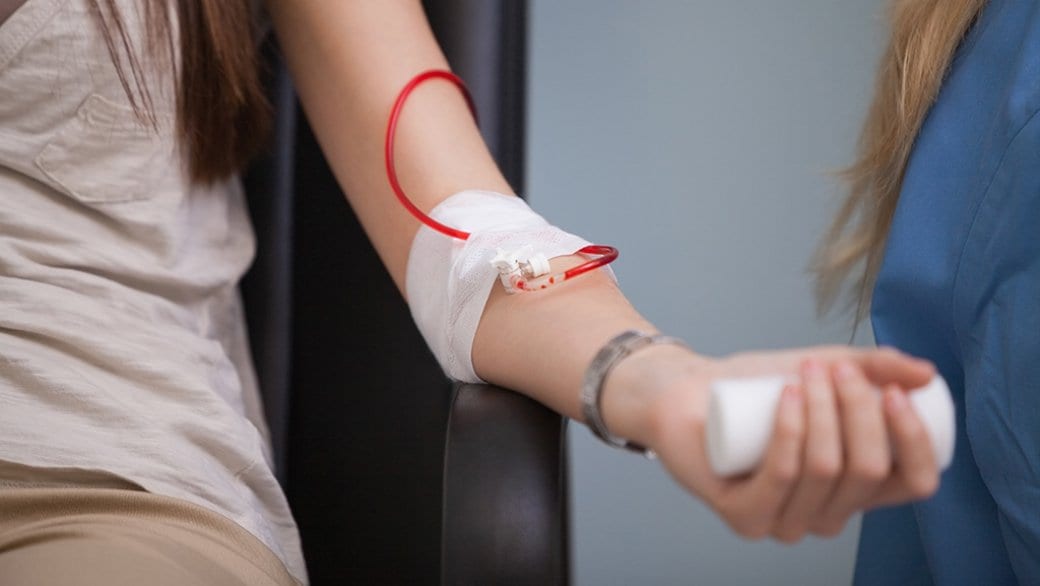Canadian Blood Services is being accused of transphobia over a new policy to screen donors according to their genitalia.
As of Aug 15, 2016, CBS staff will categorize a trans woman who has not had gender-confirming surgery as male when evaluating whether the donor falls under the category of “men who have sex with men.” People in that category cannot donate blood unless they haven’t had sex with another man for 12 months.
Trans women who have had gender-confirming surgery will be screened by their “chosen sex,” according to the agency, though they will have to wait 12 months after the surgery to donate.
Montreal trans advocate Sophia Banks says she was “absolutely livid” to hear the policy.
“Why, if I have genital surgery, am I all of the sudden a woman? Especially if my ID can say ‘female?’” Banks asks. “They’re pretty much saying ‘penis equals male’ and I’m like, well this is really transphobic, and this is really cisnormative.”
Banks intends to sue CBS over the policy if Parliament encodes trans people into Canada’s human rights legislation.
“What science were they using to come to that conclusion, that if I have a vaginoplasty my blood is cleaner?” she says. “Where are they coming from, the 1980s?”
But long-time Toronto trans advocate Susan Gapka said CBS’ policy is probably an honest oversight, though she believes it still should be changed.
“It says: ‘We don’t want you; we don’t want your blood. We think it’s poisonous. You don’t belong,’” she says. “That has an enormous impact on mental health.”
It isn’t clear whether CBS consulted any trans people when forming its policy. The agency could not make someone available for an interview within 30 hours’ notice. Health Canada would not say whether they instructed CBS, or if they had approved the policy.
In a statement to media, CBS said they wanted a consistent policy to avoid confusion.
“Trans donors who have not had gender-affirming genital surgery will be screened by their assigned birth sex,” the agency wrote. “We recognize their assigned birth sex may be different than the gender with which they identify.”
CBS said the policy was decided on June 20, but five days later it was still not posted anywhere online.
“Our criteria tend to be pretty black and white,” Mindy Goldman, CBS’ medical director, told BuzzFeed. “Where that leaves us with trans donors is they’re not an easy population for us to screen because they’re transitioning often, they don’t fit nearly into a category.”
CBS oversees all Canadian blood donations, except in Quebec, where it is run by Héma-Québec. A spokesman for Héma-Québec said their agency has only come across two trans people wanting to donate blood in recent years.
“We manage those situations on a case-by-case [basis],” spokesperson Laurent-Paul Ménard tells Daily Xtra. “Since those situations don’t happen that often, and [because] each and every case might have its own characteristics, we’re not intending to change our policy.”
Gapka isn’t sure whether Quebec’s case-by-case assessment is any better.
“I personally would rather not go through that, because the chances of being treated poorly is a great risk, to be treated by some healthcare provider who doesn’t understand the dynamic of being trans,” she says.
CBS’ trans policy comes on the heels of Health Canada’s June 20 decision to lower the abstinence period for gay and bisexual male donors from five years to 12 months. The federal government also pledged $3 million “to fund behavioural research to ensure non-discriminatory practices.”
Since 2014, the Liberal party website has hosted a petition to “end the gay blood donation ban” before pledging to do so in the 2015 election. The government says it’s sticking to that promise, though it hasn’t given any timeline. In the fall, the House of Commons’ health committee will vote on whether to study a repeal of the ban.
Gapka said she’s heartened by the increased public understanding of trans issues, and the mainstream coverage of CBS’ trans policy.
“It’s unfortunate this is happening. But I couldn’t be happier about how much progress we’ve made,” she says. “It appears that the people advising the government are out-of-touch with society.”

 Why you can trust Xtra
Why you can trust Xtra


